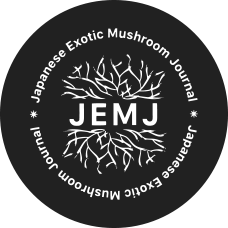Login or Subscribe
You must be logged in to access this content
Subscribe for free access to Japanese Exotic Mushroom Journal and gain insider knowledge on effective cultivation methods for Japanese mushroom species. Elevate your skills with expert tips and innovative technologies to master the art of growing Japanese exotic mushrooms.
◆ Discover exclusive Japanese mushroom cultivation techniques
◆ Learn innovative methods to enhance mushroom quality and yield
◆ Tap into Japan's rich heritage for unique growing insights
◆ Discover exclusive Japanese mushroom cultivation techniques
◆ Learn innovative methods to enhance mushroom quality and yield
◆ Tap into Japan's rich heritage for unique growing insights
Subscribe Now for Free Login
Why Sakato?
A Look at Japan’s largest cultivation bag producer
Cultivation bags seem like a very small part of mushroom cultivation, but in reality, it was the development of bag-based cultivation (side-by-side with bottle cultivation systems) in Japan in the early 1980s that enabled the explosive growth of the mushroom industry in that country. So successful at lowering costs and increasing yields has this system been, that now, the perception of mushrooms as extremely cheap and continually available has been baked into the consciousness of two entire generations of Japanese consumers. While all the various pieces of machinery, mixers, filling machines, autoclaves, inoculation machines and the like, often grab all of the attention, reliable bags that effectively let mushrooms breathe while preventing contamination, are an easily overlooked component of cultivation as well. Cultivation bags are a practical working solution to a complex problem, namely the delicate balance between protecting the mycelia in the incubation stage from being dried out, damaged, or out-competed by other fungi or molds (like Trichoderma), and the need of fungi for fresh oxygen. Growers, too, need stability and reliability in bags that will be sterilized at high temperatures, and then handled quite a bit across conveyer belts, various machines, from shelf to shelf, and by numerous human hands before finally being removed during the fruiting stages. A simple product, but one with profound importance to the expansion and profitability of exotic mushroom cultivation.In mushroom cultivation bag manufacturing, an extremely niche industry, Sakato Sangyo is among the most experienced veterans. Sakato is Japan’s largest producer of mushroom cultivation bags for good reason: the firm has a sterling reputation for quality and reliability provided at reasonable prices in a competitive industry that operates under continually tight margins. Sakato is able to do this by being the only cultivation bag producer that runs the entire production process in-house, starting from unprocessed plastic granules from which the firm produces its own plastic mixes. The machinery, plastic mixes, sizes, suturing methods, filters_emdash_nearly every part of the production process is unique to Sakato Industries, which holds well over a dozen patents. As a result, Sakato can inspect the source material plastics for flaws, and thoroughly tests and inspects each stage of the bag’s production process, which runs the gamut from experienced workers doing a quick physical check to examining the sutures with a microscope imager, to filling bags with water and doing pressure tests. Each inflation machine is also carefully recalibrated and tested each week when the factory is restarted, with workers confirming bag thickness down to a thousandth of a millimeter before the line is restarted.As a result of their deep experience and control over the entire manufacturing process, Sakato is among the only producers in the market that can provide custom products and make various minor alterations for growers. Sakato’s product line and diversity is enormous even without requesting any custom changes. Aside from being the biggest single cultivation bag producer in Japan, the company’s cultivation bags have also become a staple in the exotic mushroom industry abroad precisely because of their variety and their ability to pair Japanese precision manufacturing without breaking the bank.Sakato Industries has built a competitive system from scratch, even storing several months of plastic at a time, which insulates it from supply chain shocks and enables it to control costs better than firms that rely on importing manufactured film, which they then process into cultivation bags. Custom-made machinery, industry experience, and plastics engineering expertise all play a part in producing a cultivation bag that is extremely reliable and easy to use. The company also runs a variety of growing tests using its cultivation bags, and is constantly collecting feedback from clients on its products, which it uses in improving existing product lines and creating new ones. The concept of kaizen (detail-based, granular improvements), a core precept of Japanese business culture, runs strong in Sakato Industries as well. In an industry with a lot of new players and often long and opaque supply chains, Sakato Industries is one of the only producers where the entire production line can be inspected_emdash_at one location in one afternoon_emdash_and brings with it reliable production capacity and a trustworthy product built on decades of tiny improvements.





 1-2-13 Honmachi, Komoro city, Nagano prefecture, Japan 384-0026
1-2-13 Honmachi, Komoro city, Nagano prefecture, Japan 384-0026